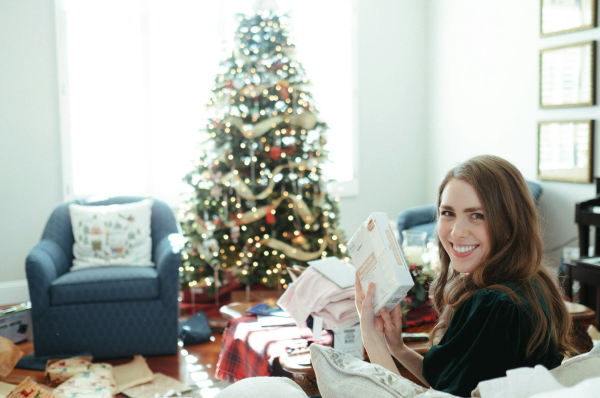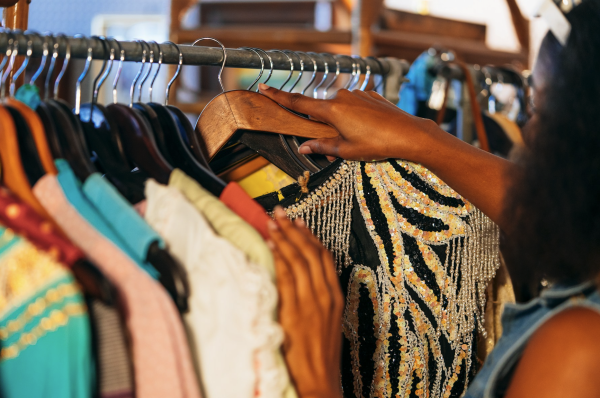Is second-hand finally acceptable for gifting? Will 2024 be the year we embrace pre-loved presents?
Written by Jess
Nav
This page contains affiliate links, for which we may earn commission.
For years, second-hand items carried a stigma, often dismissed as “not good enough” for gifting, a serious offence to some people. But times are changing. As sustainability becomes a key focus for consumers and unique, meaningful gifts gain traction, second-hand gifting is stepping into the spotlight. With the changes to lifestyle in 2024, are we finally ready to do all our holiday shopping second-hand, saving money and the planet in the process? Let’s explore why this year might mark a turning point.
The changing perception of second-hand
Second-hand is no longer considered second-best. In fact, buying pre-loved is now seen as a thoughtful, eco-conscious choice. A growing number of people value:
- Sustainability: Second-hand gifting reduces waste and the demand for new production, aligning with the global push for greener living.
- Originality: Pre-loved items often have character, history, or uniqueness that mass-produced gifts simply can’t replicate.
- Affordability: With inflation impacting budgets, second-hand gifts offer a way to give generously without overspending.
Retailers and platforms are also making it easier than ever to find high-quality, curated second-hand gifts that feel just as special as new ones.


Why 2024 could be the year of second-hand gifting
- Mainstream acceptance: Major brands and online marketplaces are now embracing the second-hand economy. From refurbished tech to vintage fashion, pre-loved items are increasingly accessible and socially acceptable.
- Eco-conscious consumers: A 2023 survey found that over 60% of shoppers prioritise sustainability when choosing gifts. Second-hand gifting aligns perfectly with this trend.
- Economic pressures: With rising living costs, more families are seeking affordable alternatives that don’t compromise on quality. Second-hand items often offer better value for money.


It’s about values, not valuation
Choosing a second-hand gift doesn’t mean the giver values the recipient any less. Instead, it reflects a shift in priorities towards sustainability and thoughtful consumption. A good gift isn’t defined by whether it’s new or pre-loved—it’s about the care and consideration that goes into choosing it. If the recipient would love the item if it were new, they’ll likely appreciate it just as much second-hand. Ultimately, what makes a gift special is the thought behind it and its suitability for the recipient’s tastes and preferences.
Benefits of shopping second-hand for gifts
- Save money: You can find high-quality items at a fraction of their original price, from designer handbags to top-notch tech gadgets.
- Reduce waste: Every second-hand purchase helps keep items out of landfills and reduces the environmental footprint of manufacturing new products.
- Discover unique finds: Whether it’s a vintage brooch, a rare book, or a beautifully aged leather bag, second-hand shopping is a treasure hunt for one-of-a-kind items.
- Support a circular economy: By buying and gifting second-hand, you contribute to a system that values reuse and longevity over disposability.
What the data says about second-hand gifting
According to recent research by Vinted’s Recommerce 2024 Report, second-hand purchases are expected to account for 10% of total UK Christmas gift sales, amounting to a staggering £2.05 billion. The report also found that 84% of shoppers are likely to spend part of their festive budget on pre-loved items, with younger generations leading the charge. Notably, 73% of shoppers said they would buy second-hand if they found a unique item, and 71% if they found something of high quality.
Similarly, a survey by OfferUp revealed that 3 in 4 shoppers believe second-hand gifting has become more accepted in recent years. On the receiving end, 70% of shoppers said they’d be comfortable receiving pre-loved gifts, underscoring the growing mainstream appeal of this sustainable practice.
How to make second-hand gifting special
If you’re new to second-hand gifting, here are some tips to ensure your presents are well-received:
- Focus on quality: Choose items in excellent condition. Many second-hand platforms now offer refurbished products that look and work like new.
- Personalise the gift: Add a thoughtful note explaining why you chose the item or customise it to make it unique.
- Wrap creatively: Use eco-friendly wrapping materials or reusable gift bags to enhance the presentation.
- Highlight the story: Sharing the story behind the item (e.g., its vintage charm or how you found it) can add sentimental value.
The future of gifting: Sustainable and thoughtful
Second-hand gifting is more than a trend; it’s a shift in how we approach the act of giving. It reflects thoughtfulness, care for the environment, and a desire to make meaningful choices. As we move into 2024, this practice is poised to become the norm rather than the exception.


Ready to embrace second-hand this year?
If you’re curious about exploring the world of pre-loved gifting, now is the perfect time. From curated second-hand shops to online marketplaces, the options are endless. Whether it’s for Christmas, birthdays, or other celebrations, second-hand gifting is a way to save money, share joy, and protect the planet.
Visit our Second-hand gift guide for over 2,000 second-hand gift ideas tailored for every personality and occasion. Let’s make 2024 the year we all shop smarter and greener!
